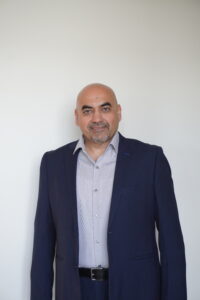
BY: Sanjay Laul, Founder of MSM Unify, Online Education Boom Breaks Geographic Barriers to U.S. Degrees.
The aggressive growth of online education is breaking global barriers to US degrees. Data confirmed that the sector is set to cross the USD 324 billion mark by 2032. This has prompted universities to deliver prestigious US programs online. For millions of students globally, a high-quality American degree is now within reach, regardless of their location.
A New Geography of Learning
The way people go to college has been transformed by the normalization of remote learning. In the fall of 2021, nearly 9.4 million U.S. undergraduates took at least one distance course. Of that group, 4.4 million were studying completely online. Online learning was once a necessity during the pandemic, but it is now becoming a preferred study model today. A University of Minnesota report confirmed that over 50% of U.S. students enrolled in at least one online course in 2022.
Online learning has also scaled outside the U.S. Coursera reported that international users vastly outnumbered those from North America. Asian countries lead the international enrollment, with 32% enrollees. Latin America followed with 18% enrollees. This global dominance is accelerating. Further reports shared that the Asia-Pacific is still leading the surge in new users. Meanwhile, Africa records the fastest growth rate annually as internet access spreads.
Providing Global Reach Through Exemplary Work
Florida Coastal University (FCU) is meeting the educational transformation head-on. The innovative digital institution delivers flexible and career-aligned programs. The programs are built around self-paced online courses and continuous enrollment. It offers specializations in high-demand industries across the world’s emerging economies.
The rise of institutions marks a pivotal moment in international education. An institution anchored in U.S. quality yet reachable from any continent is precisely what learners need today. The real frontier in education is no longer curriculum but access.
The university’s model seeks to balance technology with human support. Students can engage with academic mentors, access digital libraries, and receive round-the-clock assistance designed to address technical or administrative concerns.